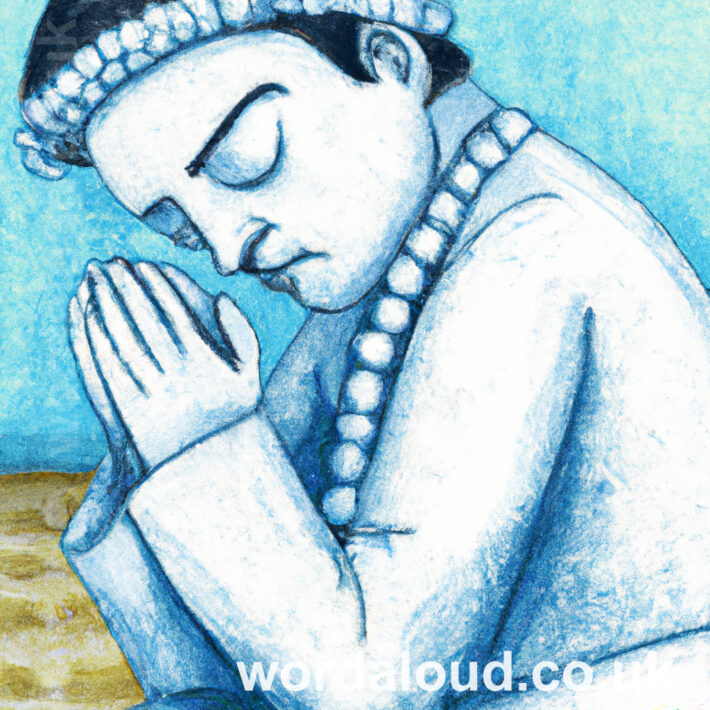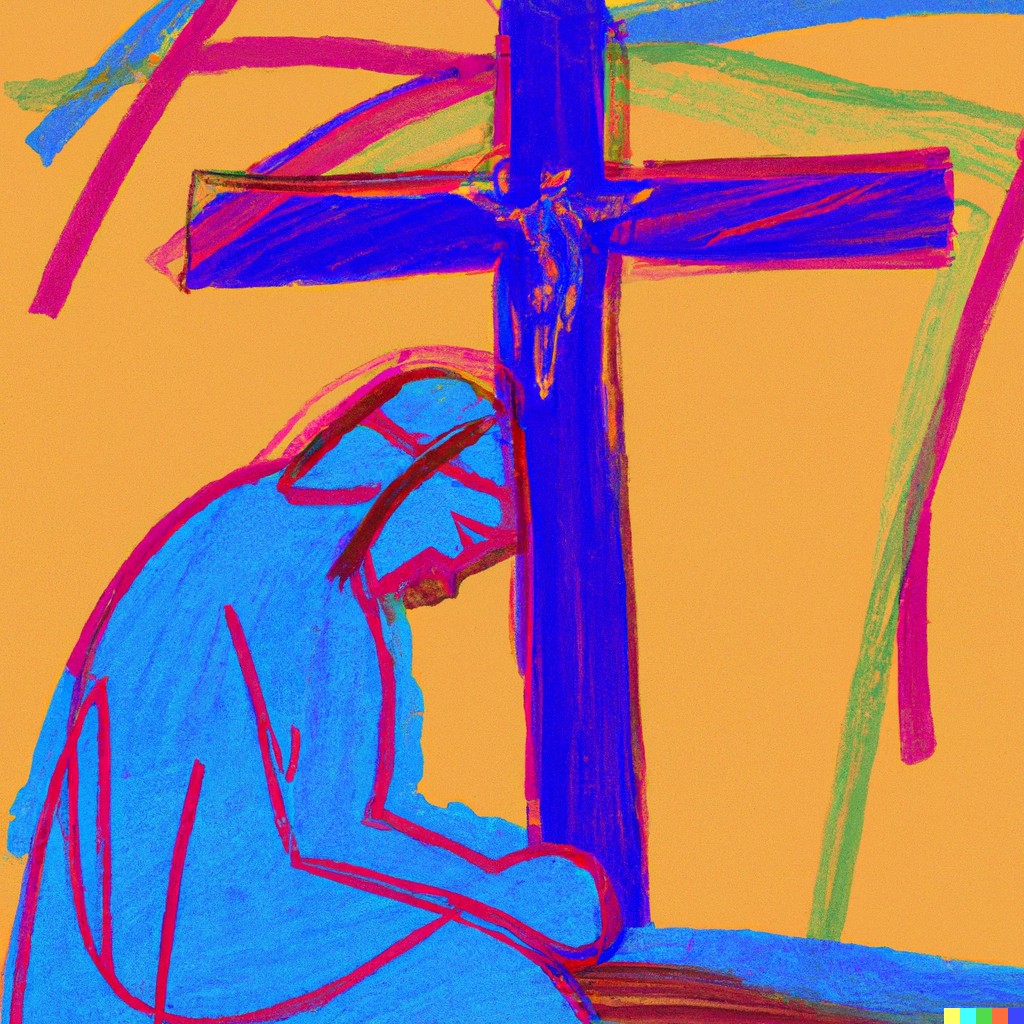Christian Art | Prayer With Jesus | Psalms | Praise And Prayer For Victory | King David As A Boy | Audio KJV | Love Revealed By Jesus Christ | King James Audio Bible
Psalm 108 | King James Audio Bible
YouTube: | Psalm 108 | KJV | King James Version | Audio Bible | Word Aloud
Psalm 108 is believed to originate from a period of conflict or an approaching battle. This background is mirrored in the psalmist’s request for support against adversaries and in certainty in God’s promises. Psalm 108 combines parts of Psalm 57:7-11 and Psalm 60:5-12, indicating an intentional blend of existing hymns to communicate a specific message. This technique expresses the depth of Israel’s hymnal tradition and the devotion of the psalmist.
Themes and Interpretation
- Praise and Worship: The opening verses are filled with a spirit of praise and worship. The psalmist states a commitment to praising God and calls for musical instruments to join this expression of adoration. This focus on worship, irrespective of circumstances, highlights belief that praise is an ongoing obligation and joy.
- Trust in God’s Promises: At the heart of Psalm 108 is the theme of reliance on God’s assurances. The psalmist remembers God’s guarantee of victory and aid, reflecting a firm belief in God’s reliability. This trust is not only personal but also includes the collective destiny of the Israelites, suggesting a shared message in the psalm.
- Prayer for Deliverance: The latter part of the psalm moves to a plea for rescue and help. The combination of praise and request is typical of many psalms, showing that prayer and worship are connected. The psalmist’s appeal for God’s intervention against enemies shows an understanding of life’s challenges and the necessity for divine support.
Psalm 108 is a testament to the power of faith and the timeless nature of biblical wisdom. The psalm combines praise, prayer, and confidence in God’s promises to provide guidance for a life of faith that goes beyond time and situation. As a source of personal inspiration, a model for worship, or a focus for theological study, Psalm 108 continues to offer insights and spiritual guidance to all who engage with it.
In examining this psalm, one notices the strategic use of language and structure. The psalmist employs a range of literary devices to convey their message, from parallelism to imagery, which enhances the depth of the text. The structure of the psalm, with its division into distinct but interconnected parts, facilitates a journey from personal affirmation to communal appeal.
The use of historical references and geographical locations in Psalm 108 connects the text to specific moments and places in Israel’s history. This connection anchors the psalm in reality, giving it a tangible quality that enhances its impact. The references to specific enemies and regions in the psalm also provide a backdrop against which the themes of trust and divine support are highlighted.
Psalm 108 functions as a bridge between individual experience and communal identity. While it begins with personal declarations of faith and worship, it transitions into concerns that are national in scope. This shift from the individual to the collective reflects the communal nature of Israelite worship and the understanding that individual faith is intertwined with the fate of the community.
The psalm also engages with the concept of kingship. As a composition attributed to David, a king, it brings together the roles of ruler, warrior, and worshipper. This combination of roles provides a multifaceted perspective on leadership and responsibility, especially in the context of faith and community.
Psalm 108’s inclusion of previously composed hymnal material speaks to the dynamic nature of biblical texts. It shows an engagement with tradition, where older texts are not merely preserved but are actively reinterpreted and recontextualized to address new situations and needs. This approach to scripture reflects a living tradition, where past, present, and future are in constant dialogue.

Psalm 108 | King James Audio Bible
O God, my heart is fixed; I will sing and give praise, even with my glory.
Awake, psaltery and harp: I myself will awake early.
I will praise thee, O LORD, among the people: and I will sing praises unto thee among the nations.
For thy mercy is great above the heavens: and thy truth reacheth unto the clouds.
Be thou exalted, O God, above the heavens: and thy glory above all the earth;
That thy beloved may be delivered: save with thy right hand, and answer me.
God hath spoken in his holiness; I will rejoice, I will divide Shechem, and mete out the valley of Succoth.
Gilead is mine; Manasseh is mine; Ephraim also is the strength of mine head; Judah is my lawgiver;
Moab is my washpot; over Edom will I cast out my shoe; over Philistia will I triumph.
Who will bring me into the strong city? who will lead me into Edom?
Wilt not thou, O God, who hast cast us off? and wilt not thou, O God, go forth with our hosts?
Give us help from trouble: for vain is the help of man.
Through God we shall do valiantly: for he it is that shall tread down our enemies.
Psalm 108 | King James Audio Bible
- Steadfast Praise and Worship: The psalm emphasizes unwavering commitment to praising God, irrespective of circumstances, showcasing a deep devotion.
- Confidence in God’s Promises: The psalm highlights a strong belief in God’s assurances and faithfulness, especially regarding victory and support in the face of adversity.
- Prayer for Divine Assistance: The psalm includes a plea for God’s help against enemies, demonstrating reliance on divine intervention during challenges.
- God’s Sovereignty: The psalm acknowledges God’s ultimate authority and control over the destinies of nations and individuals, emphasizing His role as the supreme ruler.
- Community and Individual Faith: The psalm reflects both personal faith and its implications for the community, illustrating the interconnectedness of individual and collective spiritual experiences.
- Historical and Geographical Context: References to specific enemies and regions link the psalm to Israel’s historical context, grounding its themes in tangible realities.
- Role of Leadership in Faith: As a composition attributed to David, the psalm merges the roles of ruler, warrior, and worshipper, offering insights into the multifaceted nature of leadership in a faith context.
- Engagement with Tradition: The use of elements from other psalms demonstrates an active engagement with and reinterpretation of tradition, highlighting the dynamic nature of biblical texts.








